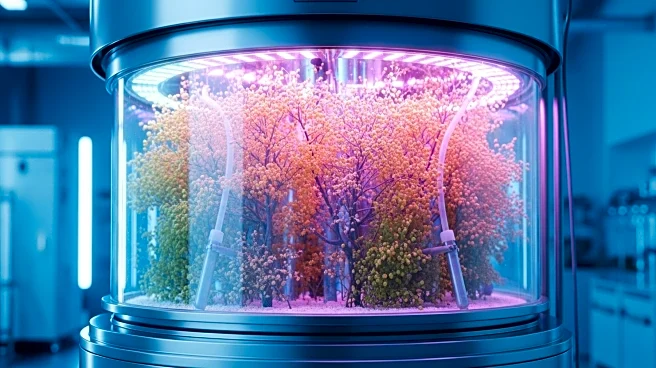What's Happening?
Fermelanta, a Japanese startup, has raised $13.6 million in a Series A funding round to enhance its capabilities in engineering microbes for the production of complex plant metabolites. The funding, led by Universal Materials Incubator Co and Beyond Next Ventures, will support Fermelanta's efforts to scale up its R&D pipelines and transition from lab to pilot production stages. The company focuses on using synthetic biology to produce high-value plant secondary metabolites, such as morphine and other alkaloids, through microbial fermentation. This approach aims to offer a more efficient and sustainable alternative to traditional plant extraction methods.
Why It's Important?
Fermelanta's innovative approach to producing plant metabolites through microbial fermentation could revolutionize the pharmaceutical and nutraceutical industries by reducing costs and increasing sustainability. The ability to engineer microbes to produce complex compounds traditionally extracted from plants addresses significant inefficiencies in current production methods. This advancement not only has the potential to lower production costs but also to enhance the availability of these compounds for various applications, including pharmaceuticals, nutraceuticals, and cosmetics. The successful scaling of Fermelanta's technology could lead to a paradigm shift in how plant-derived compounds are manufactured.
What's Next?
Fermelanta plans to continue developing its microbial fermentation technology and expand its product pipeline. The company is working on establishing partnerships with contract development and manufacturing organizations to facilitate the scale-up of production. As Fermelanta progresses, it aims to construct a pilot plant equipped with a large fermentation tank by 2026, which will enable mass production of its engineered compounds. The company also seeks to explore regulatory pathways for its products, particularly those intended for pharmaceutical use, and may seek partners for simplified clinical trials if the compounds are active pharmaceutical ingredients in generic drugs.









